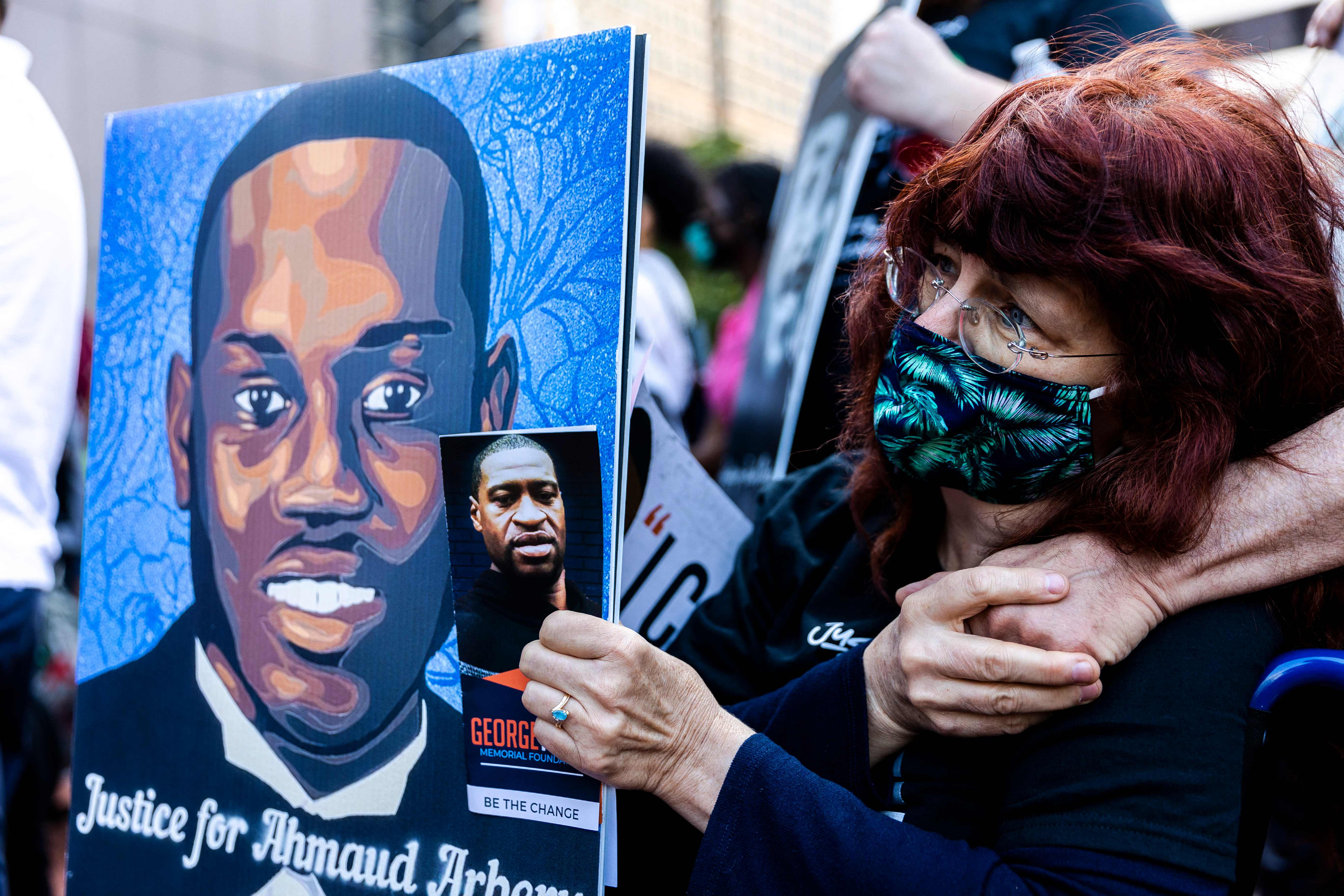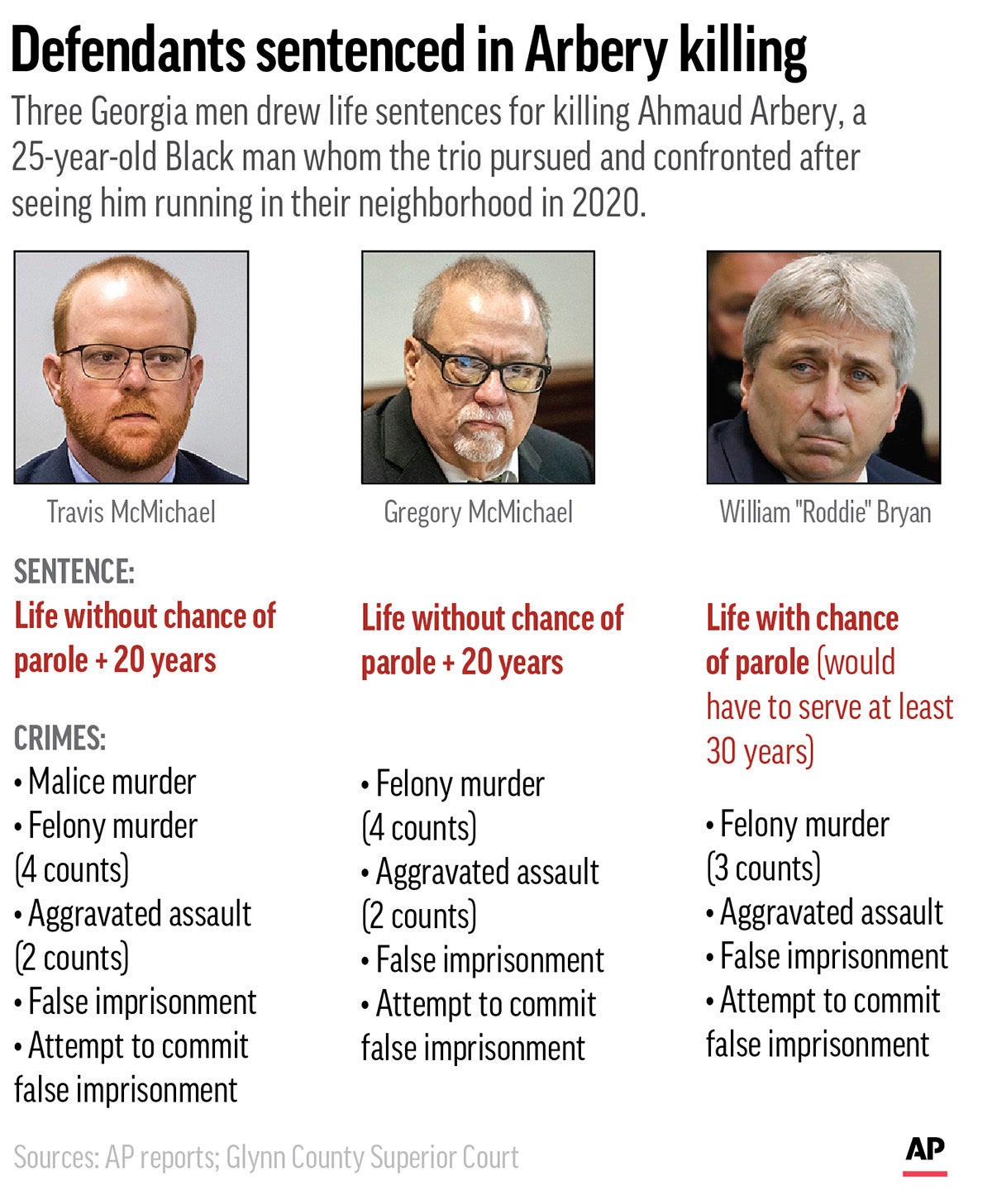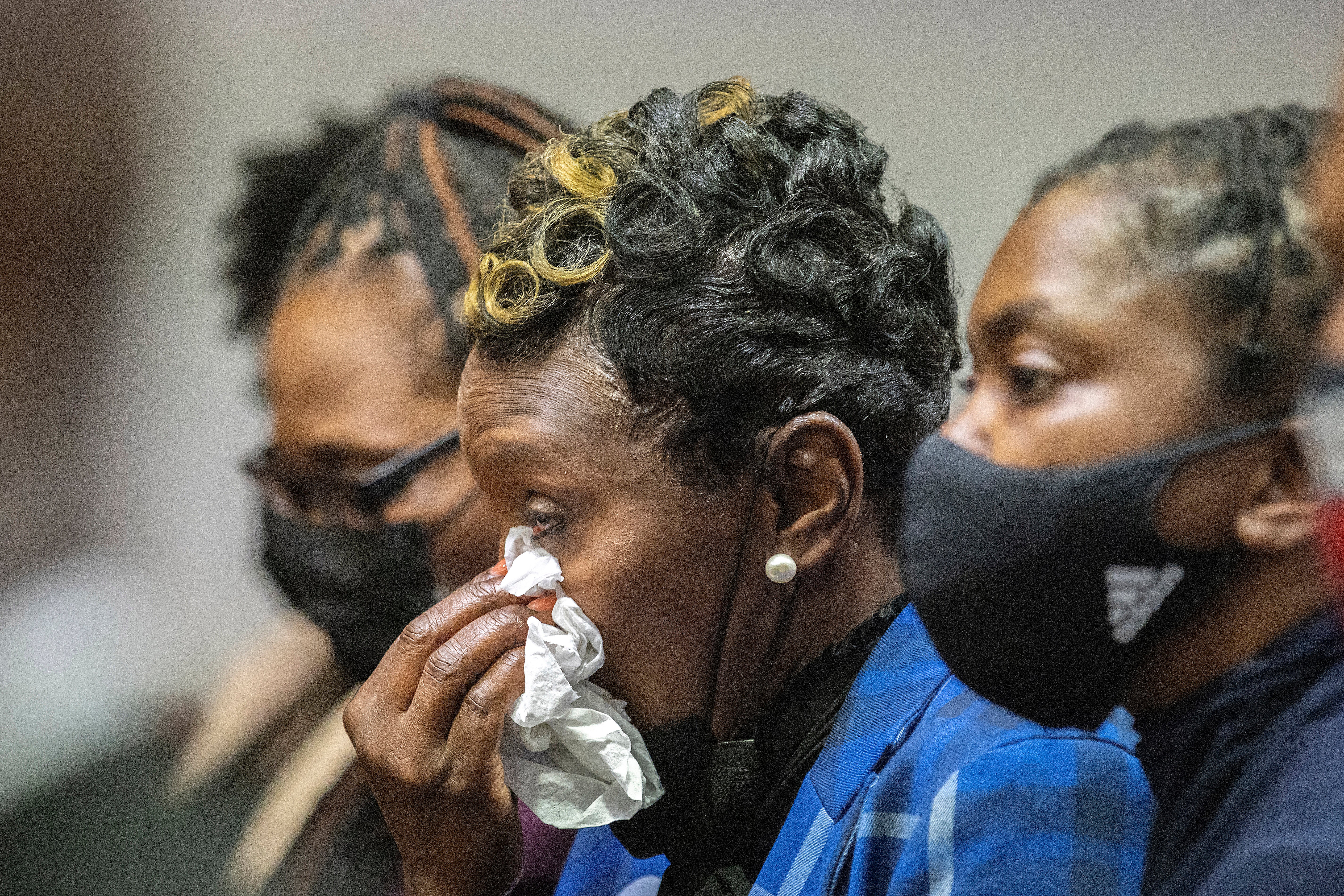Ahmaud Arbery: What’s next for the murderers, other officials and America following the sentencing?
The three white men who chased and shot dead Black 25-year-old Ahmaud Arbery were sentenced to life in prison on Friday. But this far from marks the end of the case, writes Rachel Sharp


Almost two years after Ahmaud Arbery was chased through a neighbourhood by three men in pickup trucks and shot dead in the street, his killers were told they would spend the rest of their lives behind bars.
Travis McMichael, 35, and his father Gregory McMichael, 66, were both sentenced to life in prison without the possibility of parole on 7 January.
Their neighbour, William “Roddie” Bryan Jr, was sentenced to life in prison with the possibility of parole.
While the McMichaels will die in prison, Bryan’s future isn’t much less bleak as he must serve at least 30 years before he will be considered for parole. He is 52 years old.
The judge said the three men murdered the 25-year-old Black man in a “callous” killing back on 23 February 2020.
They chased Mr Arbery in their pickup trucks before Travis McMichael shot him at close range while the Black man’s family said he was out for a jog.
The three killers walked free for more two months before finally being arrested and charged with nine counts, including one count of malice murder, four counts of felony murder, two counts of aggravated assault, one count of false imprisonment and one count of criminal attempt to commit false imprisonment.
In November, they were all found guilty of multiple charges including murder before being sentenced on Friday.
However, the sentencing of the three murderers does not mark the end of the case.

All three men are expected to file appeals against their convictions.
Meanwhile, they are also due to stand trial on federal hate crime charges in February.
The first district attorney assigned to the case is also facing criminal charges over her handling of the initial investigation.
Mr Arbery’s mother Wanda Cooper-Jones is also pursuing a civil lawsuit against police and prosecutors over their handling of the case.
Beyond this, many also feel the case could have far-reaching implications on so-called vigilante justice across America.
Here’s what to expect over the coming months:
Federal trial
Following their conviction on state charges, the McMichaels and Bryan now face separate federal charges at a federal hate crimes trial which is scheduled to begin in February.
The hate crime charges accuse the three men of using force to intimidate and interfere with Mr Arbery’s rights because of his race.
These federal charges also carry a maximum sentence of life in prison.
Earlier this week, Mr Arbery’s family rejected an 11th-hour plea deal for the three men which would have sentenced them to 30 years in federal prison on those charges.
Attorney Lee Merritt said on Friday morning the family was contacted by the Justice Department with the plea deal but turned it down because they want the killers to also face federal trial.
“We believe that today the state will move forward with life sentences without the possibility of parole, and we think that’s the appropriate sentence,” Mr Merritt said.

Charges against prosecutor
The first prosecutor assigned to the case is now also awaiting trial on charges that she abused her position of power to shield Mr Arbery’s killers from prosecution.
Jackie Johnson, who was the district attorney of Brunswick Judicial Circuit at the time of the murder, was a former colleague of Gregory McMichael.
Gregory McMichael was a retired police officer with Glynn County Police and had worked for two decades as an investigator in the Brunswick DA’s office, alongside Ms Johnson.
He had called his former colleague to ask for “advice” just hours after the killing.
Ms Johnson recused herself from the case because of Gregory McMichael’s ties to her office.
She handed the case to a second prosecutor George Barnhill who recommended no charges be brought over Mr Arbery’s death and claiming the killers’ actions were “perfectly legal”, before also recusing himself.

The three murderers evaded justice over Mr Arbery’s murder for more than two months.
It was only when Gregory McMichael’s attorney leaked the footage online - believing it showed they had not committed any crime - that they were finally arrested and charged.
In September, Ms Johnson was criminally charged with misconduct over her handling of the investigation into Mr Arbery’s death.
She was indicted on charges of violating her oath as a public officer and obstructing a police officer.
Prosecutors said she prevented two Glynn County police officers from exercising their duties by directing them not to arrest Travis McMichael.
She then violated her oath by “showing favor and affection to Greg McMichael during the investigation,” prosecutors said.
Ms Johnson also also allegedly sought assistance from DA Barnhill in the case before recusing herself. She then recommended that he take over the case without disclosing his assistance.
Mr Arbery’s mother welcomed the charges against the prosecutor.
"She didn’t pull the trigger, but she is just as much to hold accountable as the three guys who actually did this to Ahmaud," she said.

Vigilante justice
The high-profile case raised many questions about so-called vigilante justice, citizen’s arrest and self-defence laws.
Following Mr Arbery’s murder, the killers claimed they were trying to carry out a citizen’s arrest, saying they believed he was responsible for break-ins in the neighbourhood.
Their defence focused around Georgia’s Civil War-era citizen’s arrest law which allowed any Georgia citizen to arrest another citizen if they believed they had committed a felony crime either “in his presence or within his immediate knowledge”.
Travis McMichael, who shot Mr Arbery twice at close range, said he then acted in self-defence when the Black man grabbed the gun he had pointed at his chest.
The Republican-led state of Georgia repealed the citizen’s arrest law following Mr Arbery’s murder.
Regina Bateson, assistant professor at the Graduate School of Public and International affairs at the University of Ottawa who has written on the topic of vigilantism, told The Independent back in November that this marked a pushback against vigilantism.

“Instead of doubling down and condoning their actions, the state is now pushing back and defining the bounds of acceptable behaviour,” she said.
“This case has the potential to be transformative” in shifting public opinion around the entire concept of vigilante justice, she added.
However, most other US states still have some version of citizen’s arrest law in place.
Prior to the verdict, lawmakers in New York, Florida and South Carolina had all proposed bills to repeal the laws in their states but progress has been slow.
Ms Bateson said that the outcome of Mr Arbery’s killers could pave the way for an end to ordinary citizens arming themselves with firearms, going out into the streets and taking the law into their own hands.





Bookmark popover
Removed from bookmarks